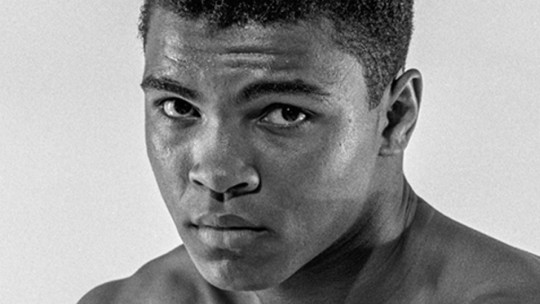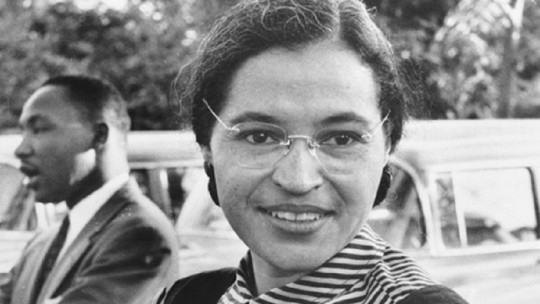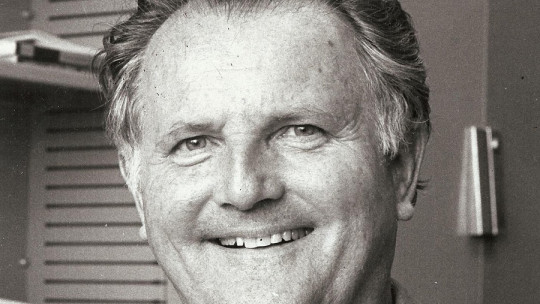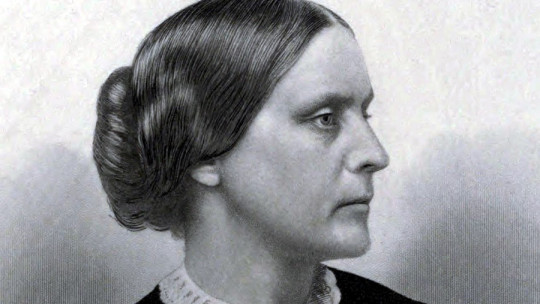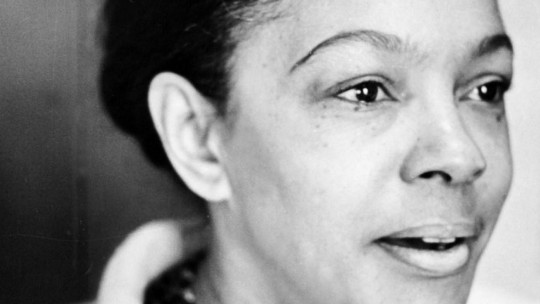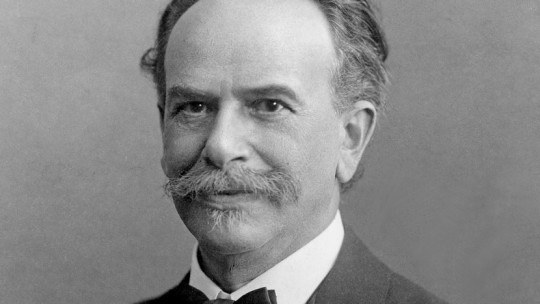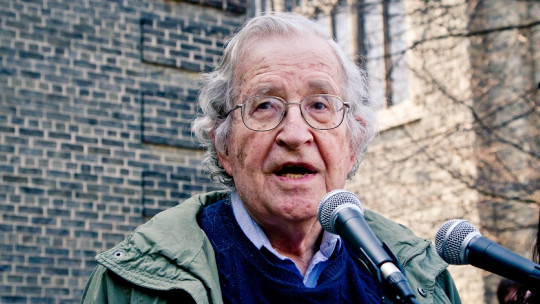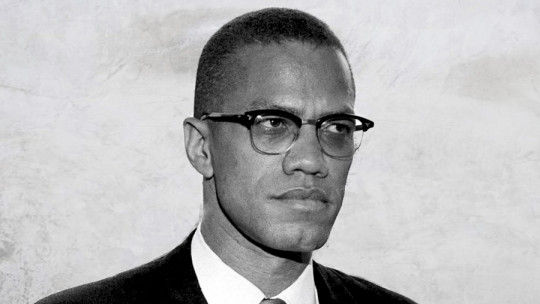
Malcolm X is one of the most important and, at the same time, controversial figures in black history. Defender of the rights of African Americans and very critical of the white powers of the United States, he promoted the contact of blacks with their African roots.
His life is fascinating and, although not everyone liked it, his political project for the black race has been the spark for the creation of black nationalism. Let’s take a deeper look at his life through this Malcolm X biography in summary format.
Malcolm X Biography
The life of Malcolm X is very intense, as is his activity as a defender of the rights of African Americans and defender of the Islamic faith.
Early years
Malcolm X’s birth name was Malcolm Little and he was born in Omaha, Nebraska, United States, on May 19, 1925. He was the son of a Protestant pastor and a mulatto woman who was born as a result of a white man raping a black woman. Malcolm X’s childhood was tough. He had to live with the constant transfers of his family, which suffered constant attacks from racist groups.
While still a child, he experienced the murder of his father, a staunch defender of workers’ rights. After this misfortune, Malcolm’s mother was admitted to a psychiatric hospital, due to losing custody of her children after her husband died.
After these events, who was still called Malcolm Little He went from house to foster home, experiencing the harsh conditions with which blacks were treated who did not have the support of their family.
He moved to New York, where he became a street criminal. He became involved in shady activities, such as drug trafficking, robberies and prostitution. He would later be involved in the underworld affairs of Boston and New York. However, in 1945 he ended up being arrested and sentenced to between eight and ten years in prison.
Entry into the Nation of Islam
During his stay in prison he gave up drugs and began studying by correspondence It was in the seven years that he was imprisoned that he came into contact with an organization, influenced by other inmates, that would be fundamental for the rest of his life and in the formation of his thinking: the Nation of Islam.
This organization was a Muslim religious movement that was led by Elijah Muhammad in which the idea was postulated that Allah’s favorite race was black and that white people were the personification of the devil, a race doomed to disappear imminently.
In 1952, after leaving prison, Malcolm visited the leader of the Nation of Islam in Chicago, Illinois. It is during the course of this visit that Malcolm Little would sacrifice his last name for that of a simple X, an act loaded with meaning. The X symbolized the African surname lost by blacks when a white master enslaved one of their ancestors
Malcolm X’s influence within the organization was immediate. In 1953 he managed to be named assistant minister of Temple Number One of the Nation of Islam in Detroit and, at the end of the same year, he would found Temple Eleven in Boston.
The following year he would found Number Twelve in Philadelphia, and would be chosen to lead Temple Number Seven in Harlem. He would also be the founder of the Muhammad Speaks newspaper.
The organization was contrary to many ideas defended by the Civil Rights Movement He defended the idea that blacks and whites should remain separate. In fact, they defended the idea of creating a new country, made up exclusively of black people in the southern United States, as a provisional measure so that black people could return to Africa.
Malcolm He argued that Wallace Fard Muhammad, the founder of the organization, was the personification of Allah and that Elijah Muhammad was his messenger.
But not only did his opinion and his entry into a black supremacist organization raise controversy. The FBI opened an investigation into Malcolm X in 1953 because he declared himself a communist something very controversial in the middle of the cold war.
Meeting with Fidel Castro and other world leaders
If the FBI already had its suspicions of Malcolm X’s communist activities, Fidel Castro’s 1960 visit to New York was a clear indicator of his sympathies against American capitalism. Fidel Castro had set foot on North American soil with the intention of meeting at the United Nations General Assembly. Because of Malcolm X’s impressive statements as an active member of the Nation of Islam, Fidel Castro wished to meet with him privately.
Also, at the same General Assembly, Malcolm was invited to visit events held by recently independent African nations including Gamal Abdel Nasser of Egypt, Ahmed Sékou Touré of Guinea and Kenneth Kaunda of the Zambian African National Congress.
Abandonment of the Nation of Islam
Given Malcolm X’s controversial views, The media presented him as an apostle of violence in addition to emphasizing his message of rejection of the white man and showing him as a supremacist, but African American.
On December 1, 1963, he was asked about his opinion regarding the assassination of President John F. Kennedy, implying that he was happy about the event. Also, when asked about the murder of Patrice Lumumba and Medgar Evers, activists for black rights, and the attack on the 16th Street Baptist Church in Birmingham (Alabama), he said the same thing as with the president Kennedy.
These comments provoked the anger of society, both white and black. Even the Nation of Islam had issued a message of condolence to the Kennedy family and had ordered its ministers not to comment on the assassination. The Nation of Islam publicly censured Malcolm and, despite retaining his position, he was prohibited from speaking in public for 90 days.
But the rivalry within the organization between Elijah Muhammad and Malcolm X caused the latter to first organize more effective ways to silence him. An assassination plan began to be orchestrated. Suspecting this, Malcolm X decided in 1964 to officially break with the organization, saying that the Nation of Islam had become too rigid with its religious doctrine.
In these times he opted for an even more active political struggle, denouncing that neither the Nation’s individual reform actions nor Martin Luther King’s campaign for civil rights would lead to the liberation of blacks. Violence was necessary. It was then that founded the Muslim Mosque movement (Muslim Mosque, Inc.) within North American society.
Contact with Sunnism
Malcolm It was during this trip that he changed his racial position, understanding that the twinning of all races was possible
Thus he stopped preaching separatism and segregation to move to a more supportive position of black nationalism, as opposed to the white nationalism in which the United States of America was based.
His visits to several Muslim countries allowed him to have contact with Sunnis who encouraged him to learn in depth about what Islam was according to them.
Despite his friendlier vision regarding the relationship between races, he did continue to defend the idea that African Americans had every right to defend themselves against aggressors proportionally, with all the necessary violence. He continued to reject the pacifist message of nonviolence of the civil rights campaign.
His popularity continued to be notable, and he held several conferences on many university campuses, underscoring the opportunity he had to be able to talk to university students and make them understand his struggle. He also spoke with political parties, such as the Socialist Workers Party (SWP), the largest Trotskyist party in the United States.
Threats and murder
The leadership of the Nation of Islam was already considering ending Malcolm X’s life even after he left the organization. He was also the victim of threats made anonymously, calling him and his wife saying that he deserved to be dead.
In June 1964 The Nation of Islam filed a lawsuit demanding Malcolm X’s home in Queens The organization was successful, and Malcolm X was ordered to vacate the house.
On February 14, 1965, the night before it was decided to hold a hearing to postpone the eviction date, that same house was burned down. Malcolm X and his family miraculously survived and, despite the event, no one could be charged.
But it would not take long for the final tragedy to occur. On February 21 of that same year, while at the Audubon Ballroom in Manhattan, Malcolm X began speaking at a meeting of the Organization of Afro-American Unity. As he spoke, someone yelled “black, get your hands out of my pocket!”, causing an uproar. Malcolm X’s bodyguards came to find out what was happening, while another man shot him in the chest with a sawed-off shotgun.
Nothing could be done for his life, officially declaring him dead at Columbia University Medical Center.
Malcolm X Legacy
Malcolm X He has been described as one of the greatest influential African Americans in history, being on par with Martin Luther King or Richard Wright. He is credited with increasing the self-esteem of African Americans and reconnecting them with their pre-slavery African roots. It is also thanks to Malcolm X that Islam had a greater impact in the United States.
Many blacks saw in the figure of Malcolm
He is also credited with having managed to change the image of beauty, which until then had been monopolized in America by whites. This is how, at the end of the 60s, and thanks to the inspiration of Malcolm the slogan “black is beautiful” arises
Several decades later, in the late 80s and early 90s, thanks to hip-hop icons like Public Enemy, the figure of Malcolm X once again had a resurgence among black youth, in addition to his name being marketed as material of merchandising. In 1992 the film was broadcast in theaters Malcolm Xa film adaptation of the activist’s autobiography, starring Denzel Washington and directed by Spike Lee.

